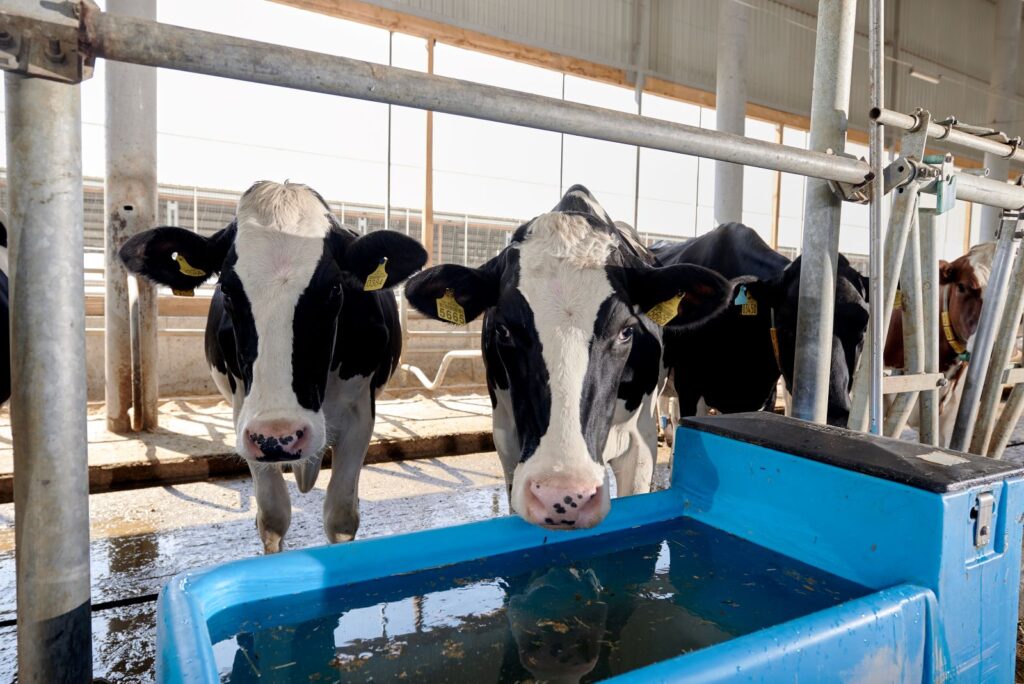Farmers losing up to £90,000 over heat stress in dairy cows, study shows
3rd May 2023
Results from an ongoing study indicate heat stress is becoming a costly problem on UK dairy farms and can affect milk yields in both housed and grazed cows, with some businesses facing losses of up to £90,000.
Now entering its fourth year, the study aims to raise awareness heat stress in cattle and assess how big a problem it is on UK dairy farms.
The findings from last year’s research were revealed at the Society of Feed Technologists ruminant conference in Coventry by Dr Tom Chamberlain, founder of Chalcombe Ltd, who is conducting the research in partnership with Lallemand Animal Nutrition.
Spanning nine dairy farms in England, the study involved monitoring temperature and humidity levels inside and outside the sheds, with the results streamed in real-time, Dr Chamberlain explained.
“The results show there were four heatwaves inside the sheds starting from early May until the middle of September, with the cows experiencing heat stress for 99 days, or 57% of the six-month trial period.”
Meanwhile, grazing cows experienced heat stress 37 days, or 22% of the trial period, with the heat stress season running from the middle of June until the middle of September, last year’s data has shown.
“Predicted milk yield losses averaged 138 litres per cow for housed cattle, ranging from 100 to 187 litres,” Dr Chamberlain continued, “while grazing cattle experienced an average loss of 129 litres per cow, ranging from 79 to 169 litres.
“The average financial loss incurred was £128 per cow, ranging from £96 to £180 a cow, with herd losses ranging from £24,000 to £90,000,” he added.
The study concluded heat stress is an emerging problem for both housed and grazed dairy cows, and should be factored into herd management plans.
“Cows will start to suffer when the temperature is about 19-20°C in the UK, and once you have cows suffering for too long, you’ll start to have problems with milk yield and fertility as well as a deterioration in rumen health,” Dr Chamberlain explained.
To mitigate the impact of heat stress on cow welfare and productivity, diary farmers much make sure factors such as water, the cows’ environment, and nutrition are optimised.
“Farmers should open up sheds as much as possible, install fans and misting systems to keep cows cool, and ensure a good supply of clean and cool drinking water that’s less than 20°C.
“They can also improve rumen health by feeding fresh rations more frequently, using high-quality forage, and including a rumen-specific live yeast, such as Levucell SC, in the ration,” Dr Chamberlain advised.
The 2023 phase of the heat stress trial will be expanded to 12 farms across the UK – from Edinburgh in the north to Southampton in the south – including a site in Northern Ireland. The results from the Lallemand-sponsored farms can be accessed in real-time here: www.dchs.info.

